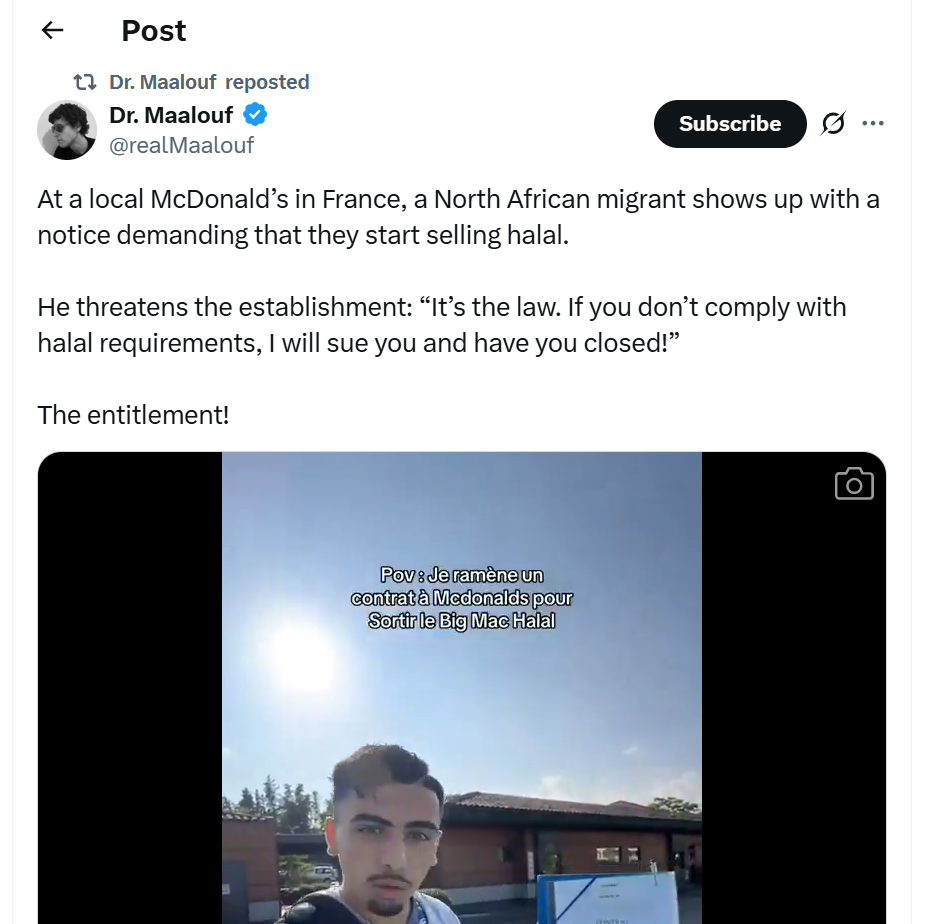
This kind of behavior risks inflaming tensions between communities and reinforces negative stereotypes about migrants and Muslims, many of whom do not support or condone such actions. The overwhelming majority of Muslims in france understand and respect the secular nature of the country, and they choose to either eat at halal-certified establishments or avoid certain food items altogether. Demanding religious accommodation through threats, rather than dialogue or market-based solutions, undermines efforts to foster peaceful coexistence and social integration.
 France has long wrestled with how to balance secular values with religious diversity. Incidents like these make that balance more difficult by polarizing public opinion and providing ammunition for far-right groups eager to frame all migrants or Muslims as intolerant or hostile to French culture. It is essential for the rule of law to prevail—threats and coercion should never be tolerated, regardless of motive. At the same time, society must continue promoting constructive dialogue, where cultural and religious identities can be respected without compromising the foundational principles of freedom, equality, and secular governance.
France has long wrestled with how to balance secular values with religious diversity. Incidents like these make that balance more difficult by polarizing public opinion and providing ammunition for far-right groups eager to frame all migrants or Muslims as intolerant or hostile to French culture. It is essential for the rule of law to prevail—threats and coercion should never be tolerated, regardless of motive. At the same time, society must continue promoting constructive dialogue, where cultural and religious identities can be respected without compromising the foundational principles of freedom, equality, and secular governance.




 click and follow Indiaherald WhatsApp channel
click and follow Indiaherald WhatsApp channel